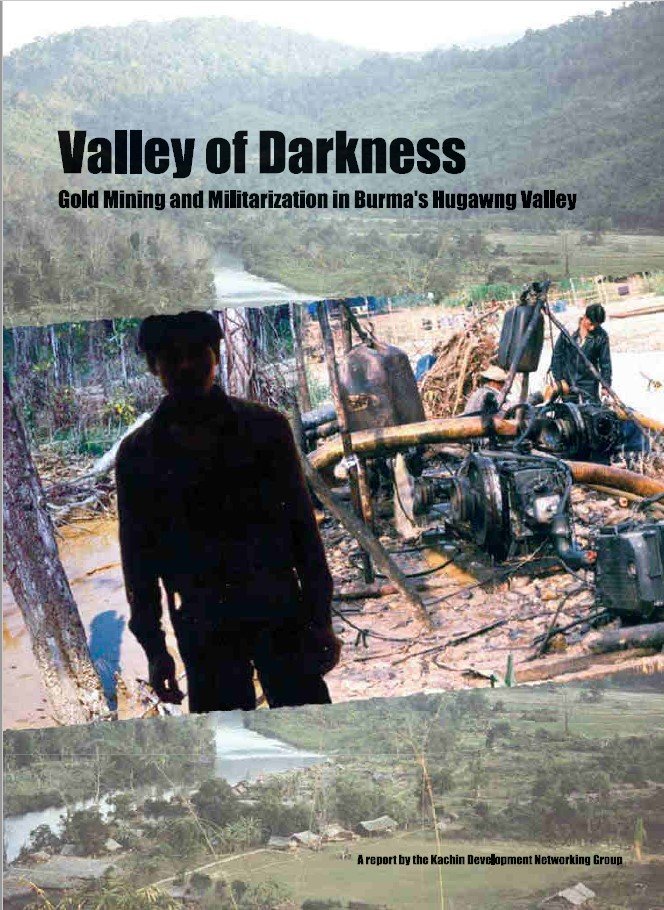
Executive Summary
The remote and environmentally rich Hugawng valley in Burma’s northern Kachin State has been internationally recognized as one of the world’s hotspots of biodiversity. Indeed, the military junta ruling Burma, together with the US-based Wildlife Conservation Society, is establishing the world’s largest tiger reserve in the valley. However, the conditions of the people living there have not received attention. This report by local researchers reveals the untold story of how the junta’s militarization and self-serving expansion of the gold mining industry have devastated communities and ravaged the valley’s for ests and waterways.
The Hugawng valley was largely untouched by Burma’s military regime until the mid-1990s. After a ceasefire between the Kachin Independence Organisation (KIO) and the junta in 1994, local resi dents had high hopes that peace would foster economic development and improved living conditions. However, under the junta’s in creased control, the rich resources of Hugawng valley have turned out to be a curse.
Despite the ceasefire, the junta has expanded its military infrastructure throughout Kachin State, increasing its presence from 26 battal ions in 1994 to 41 in 2006. This expansion has been mirrored in Hugawng valley, where the number of military outposts has doubled; in the main town of Danai, public and private buildings have been seized and one third of the surrounding farmland confiscated. Some of the land and buildings were used to house military units, while others were sold to business interests for military profit.
In order to expand and ensure its control over gold mining revenues, the regime offered up 18% of the entire Kachin State for mining concessions in 2002. This transformed gold mining from independent gold panning to a large-scale mechanized industry controlled by the concession holders. In Hugawng valley concessions were sold to 8 selected companies and the number of main gold mining sites increased from 14 in 1994 to 31 sites in 2006. The number of active hydraulic and pit mines had exploded to approximately 100 by the end of 2006.
The regime’s Ministry of Mines collects signing fees for the concessions as well as 35% – 50% tax on annual profits. Additional payments are rendered to the military’s top commander for the region, various township and local authorities as well as the Minister of Minespersonally. The junta has announced occasional bans on gold mining in Kachin State but as this report shows, these bans are temporary and selective, in effect used to maintain the junta’s grip on mining revenues.





